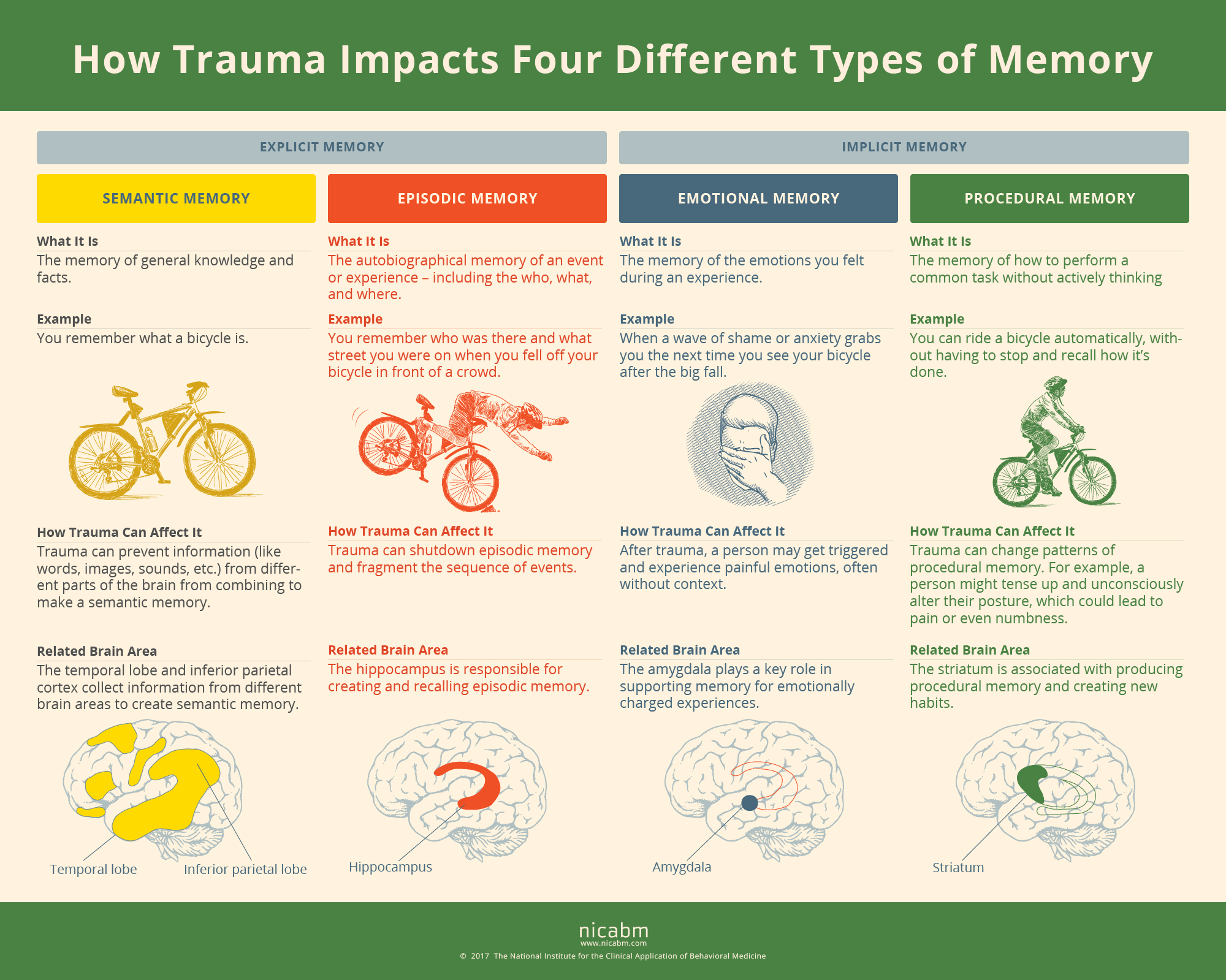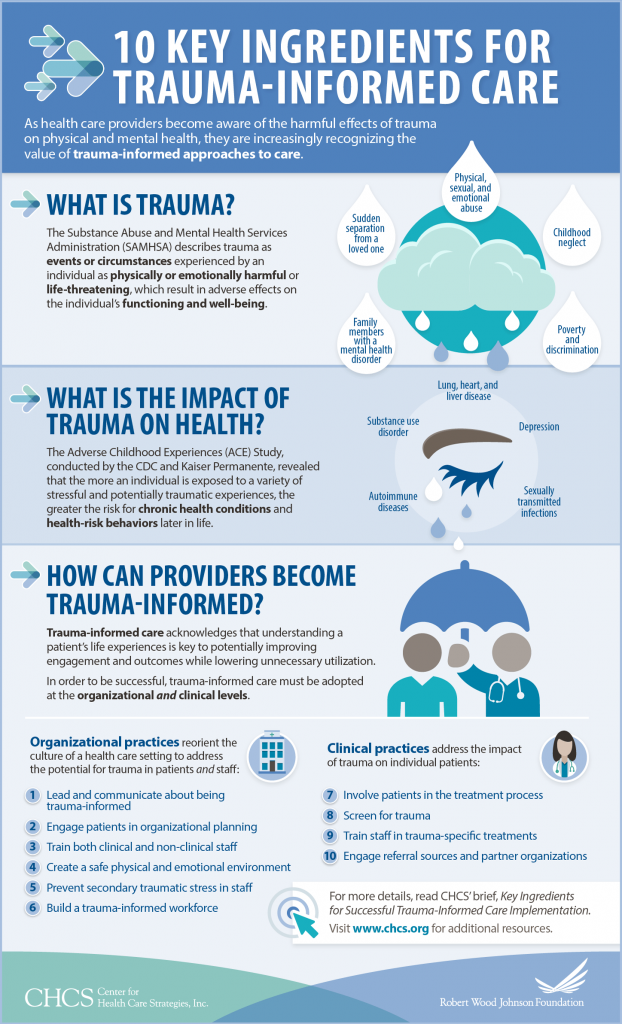How do our experiences as children shape our health as adults? What does it mean to be trauma-informed, and what does trauma-informed care look like in a health care setting?
Two videos, “What is Trauma-Informed Care?” and “Trauma-Informed Care: From Treaters to Healers,” developed by the Center for Health Care Strategies (CHCS), seek to answer these questions and shed light on why health care providers across the nation are embracing a trauma-informed approach to care. The 3-4 minute videos are available for free online — in English, as well as with Spanish subtitles — and ideal for use in meetings, employee trainings, and presentations.
“What is Trauma-Informed Care?” This animated video provides a clear and compelling message about the lifelong impact of trauma on health, and how trauma-informed care can create a more welcoming care environment for patients, providers, and staff.
Video in English. Video with Spanish subtitles.
(In order to see subtitles you may have click “settings” in the bottom right hand corner of the video, then turn subtitles ON.)
“Trauma-Informed Care: From Treaters to Healers” This video features providers and patients discussing the value of trauma-informed care and how trauma can be more effectively acknowledged and addressed in a health care setting.
Video in English. Video with Spanish subtitles.
(In order to see subtitles you may have click “settings” in the bottom right hand corner of the video, then turn subtitles ON.)
“Adverse childhood experiences are the single greatest unaddressed public health threat facing our nation today.” ~ Dr. Robert Block, former President of the American Academy of Pediatrics
ACEs Connection
Dr. Nadine Burke Harris TED Talk
Resources from the California Center of Excellence for Trauma-Informed Care
- Agency Assessment 2016
- Seeking Safety Coping Skills (English)
- Seeking Safety Coping Skills (Spanish)
- Trauma Survivor Bill of Rights
- Trauma Informed Skills Building Worksheet
How Trauma Can Impact Four Types of Memory
Trauma can have a profound impact on a person’s memory and traumatic memory can affect not only the brain, but also the body and nervous system as well.

10 Key Ingredients for Trauma-Informed Care Info-Graph


